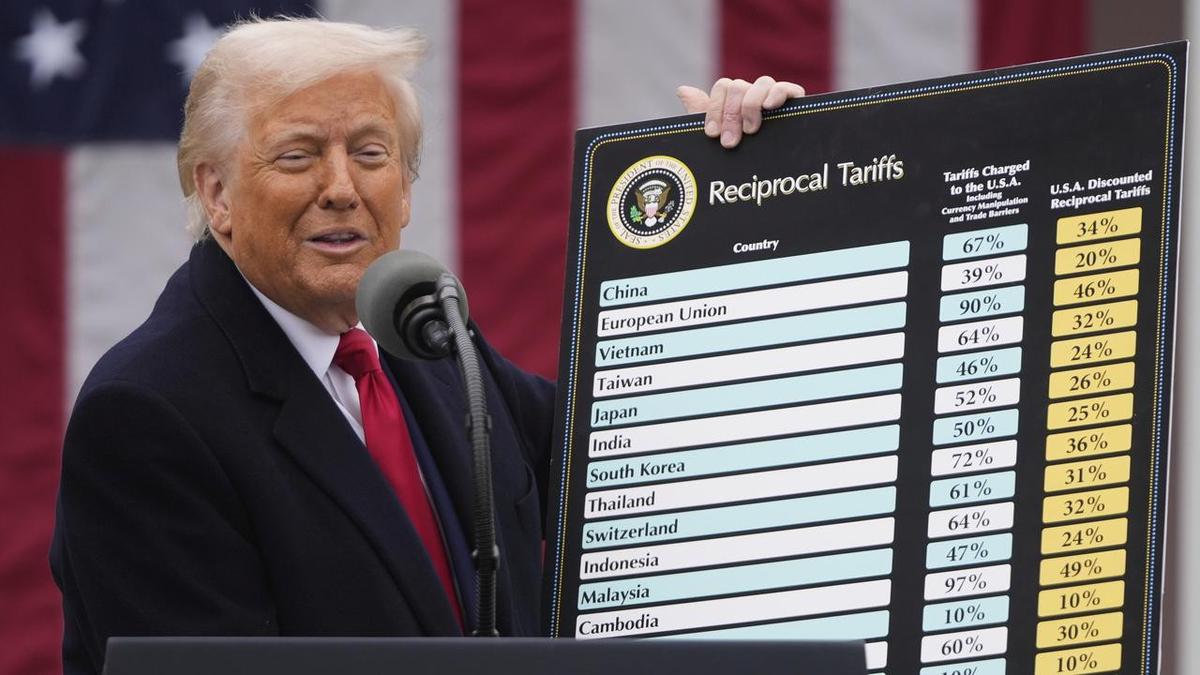Trade Deals Under Pressure: The Trump Administration’s Approach
As the August 1 deadline for trade agreements approaches, US Treasury Secretary Scott Bessent has emphasized the Trump Administration’s preference for quality over speed when it comes to trade negotiations. This statement comes amid rising tensions as countries face the prospect of steep tariffs if they do not secure deals with the United States.
“We’re not going to rush for the sake of doing deals,” Bessent declared in an interview with CNBC, highlighting the Administration’s commitment to ensuring that any agreements reached are beneficial for the US. This perspective reflects a broader strategy of prioritizing favorable terms over merely meeting deadlines, which could lead to subpar arrangements for American interests.
Flexibility in Negotiations
When questioned about the possibility of extending the August 1 deadline for countries engaged in productive discussions, Bessent noted that the final decision would rest with President Trump. This indicates a willingness to adapt to the evolving landscape of negotiations, albeit with an insistence that any extension would not compromise the quality of the agreements sought.
Bessent also suggested that if tariffs were to be implemented, they could serve as a leverage point, pressuring countries to come back to the table with better proposals. “If we somehow boomerang back to the August 1 tariff,” he remarked, “a higher tariff level will put more pressure on those countries to come with better agreements.” This approach underscores a tough negotiating stance that the Administration has adopted with various global partners.
Trade War and Its Implications
The Trump Administration has significantly impacted the global economy through its trade policies, particularly with a trade war targeting several key partners. Despite these aggressive measures, the Administration has faced challenges in meeting its ambitious goals of reaching new trade deals with numerous countries. High-stakes negotiations with nations like India, the European Union, and Japan have proven to be more complex than anticipated, introducing a layer of unpredictability into the trade landscape.
EU’s Countermeasures
In response to the uncertainty, European Union diplomats have considered a range of counter-measures to the US trade stance. Reports indicate that EU members are exploring “anti-coercion” measures aimed at counteracting perceived unfair practices from the US. Countries like Germany are contemplating actions that could limit access to public tenders for US companies if negotiations fail to yield satisfactory agreements. “The negotiations over the level of tariffs are currently very intense,” German Chancellor Friedrich Merz stated, reflecting the urgency and complexity of the ongoing discussions.
Bilateral Discussions and Future Talks
In the midst of these challenges, there are indications that President Trump may address trade issues with Philippine President Ferdinand Marcos Jr. during a meeting at the White House. White House Press Secretary Karoline Leavitt confirmed that the Administration remains actively engaged with nations globally and is preparing for potential announcements regarding new trade agreements or tariff notifications before the August deadline.
China and the Trade Dialogue
On the Chinese front, Secretary Bessent assured that discussions would be forthcoming. “I think trade is in a good place,” he stated, while also acknowledging the ongoing geopolitical complexities surrounding China’s purchasing of sanctioned oil. The US has longstanding grievances regarding China’s trade practices, particularly concerning overcapacity in manufacturing sectors such as steel. The dialogue with China will likely reflect broader economic concerns, including the need for a rebalancing of trade relations.
Japan’s Persistent Negotiations
Japan remains a focal point in trade negotiations, with its chief tariff negotiator making frequent visits to Washington in search of an agreement. The context of Japan’s recent electoral losses, influenced in part by public dissatisfaction over US tariffs, adds another layer of urgency to the discussions. This reflects the deep interconnection between international trade policies and domestic political landscapes.
Outlook for India
Meanwhile, Indian trade negotiators have returned to New Delhi following a week of negotiations in Washington, but there are growing concerns about reaching an interim agreement before the deadline. Reports from government sources indicate a dwindling optimism regarding the likelihood of a deal, which underscores the difficulties faced in these high-stakes discussions.
In summary, the Trump Administration’s approach to trade negotiations is characterized by a steadfast commitment to quality deals, a readiness to exert pressure through tariffs, and an ongoing engagement with global partners, even amid a backdrop of escalating tensions and uncertainty.


